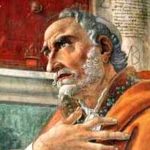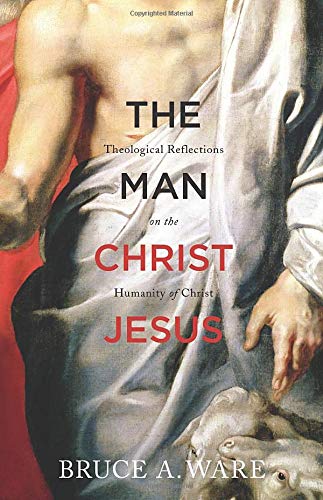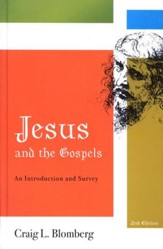Quotes about Jesus_Christ-Humanity
The word of the Father by whom all time was created was made flesh and born in time for us. He without whose divine permission no day completes its course, wished to have one of those days for His human birth. In the bosom of His Father He existed before all the cycles of the ages. Born of an earthly mother, He entered on the course of the years on that very day. The maker of man became man that He ruler of the stars might be nourished at the breast, that He the bread might be hungry, that He the fountain might thirst, that He the light might sleep, that He the way might be wearied in the journey, that He the truth might be accused by false witnesses, that He the judge of the living and the dead might be brought to trial by a mortal judge, that He justice itself might be condemned by the unjust, that He discipline personified might be scourged with a whip, that He the foundation might be suspended on a cross, that He courage incarnate might be weak, and He security itself might be wounded, and He life itself might die.
Jesus Christ, the condescension of divinity, and the exaltation of humanity.
The Son of God, had He never become incarnate, might have pitied, but He could not have sympathized with His people. To render Him capable of sympathy, it was necessary that He should become man that He might be susceptible of suffering, and that He should actually be a sufferer that He might be susceptible of sympathy.
For the type of human nature that each of us possesses is not pure human nature. The true humanity created by God has in our case been corrupted and spoiled. There have only been three pure human beings: Adam and Eve (before the fall), and Jesus. All the rest of us are but broken, corrupted versions of humanity. Jesus is not only as human as we are; He is more human. Our humanity is not a standard by which we are to measure His. His humanity, true and unadulterated, is the standard by which we are to be measured.
Christian Theology, Baker, 1998. Get this book!
It is by far the most amazing miracle in the whole Bible – far more amazing than the resurrection and more amazing than the creation of the universe. The fact that the infinite, omnipotent, eternal Son of God could become man and join Himself to a human nature forever, so that infinite God became one person with finite man, will remain for eternity the most profound miracle and the most profound mystery in all the universe.
Systematic Theology, Zondervan, 1994, p. 563. Used by Permission. Get this book!
The mystery of the humanity of Christ, that He sunk Himself into our flesh, is beyond all human understanding.
He was so obviously like other human beings that even His family and disciples would not have known of His deity had not the angels (Mt. 1:20-21; Lk. 1:26-35; 2:9-11), God the Father (Mt. 3:17; 17:5), and Jesus Himself (Jn. 8:58; 14:1-4; 16:13-15; 17:1-26) revealed it to them.
The humanity of Christ refers to the reality that in His incarnation, the Son of God assumed a complete human nature with all its limitations (but without in any way surrendering His divinity), so that He might serve as humanity’s representative, substitute, and example (Luke Stamps).
The Humanity of Christ, Used by Permission from the Gospel Coalition. www.thegospelcoalition.org
In His incarnation, the Son of God assumed a complete human nature – body, soul, mind, and will – into personal union with Himself. He did not assume a distinct human person, since He is already a divine person, but rather He gave personhood to the human nature that He assumed. As a human, Jesus experienced all the ordinary, non-sinful limitations of humanity. He grew and developed. He experienced hunger, thirst, weariness, and the full range of human emotions. His humanity was as integral to His saving work as His divinity. As the true human, the last Adam, He lived out obedience to God through our common humanity as our representative and substitute: through His life, death, and resurrection, He merits salvation for all who are united to Him by faith. As a human, He also serves as our example, providing a model for true human obedience (Luke Stamps).
The Humanity of Christ, Used by Permission from the Gospel Coalition. www.thegospelcoalition.org
If this [the humanity of Jesus Christ] is the central truth of Christianity, it is also a scandal to many. From the ancient Gnostics to contemporary Muslims, many have maintained that it is incongruous with the supreme dignity of the Deity that He should sully Himself with human weakness. Modern philosophy is also scandalized by the notion that only one human in a particular time and place could somehow constitute the definitive revelation of the eternal and immutable God. Even many in Christian history have sought to diminish or attenuate the full force of the true humanity of Christ. But the truth of Christ’s humanity is as significant for the gospel of salvation as the truth of his deity (Luke Stamps).
The Humanity of Christ, Used by Permission from the Gospel Coalition. www.thegospelcoalition.org
With equal force [of His deity], the New Testament presents Jesus as truly human; His human limitations are not an illusion, nor is His humanity swallowed up by his deity (Luke Stamps).
The Humanity of Christ, Used by Permission from the Gospel Coalition. www.thegospelcoalition.org
He was born. He grew and developed. He experienced the limitations of finitude. He was tempted. He suffered, died, and was buried. He was raised in his humanity. He continues his kingly and priestly work. He will return in his humanity (Luke Stamps).
Adapted from The Humanity of Christ, Used by Permission from the Gospel Coalition. www.thegospelcoalition.org
Without ceasing to be what He was, He became what He was not (Cyril of Alexandria).
The Old Testament anticipates that the redeemer of fallen humanity would be one who is both God and man. The New Testament plainly teaches that Jesus Christ is this divine-human redeemer. His humanity is apparent throughout the “whole course” of His obedience. His conception, birth, development, limitations, suffering, death, burial, resurrection, ascension, ongoing priestly work, and final return give powerful testimony to the genuine humanity of Christ (Luke Stamps).
Adapted from The Humanity of Christ, Used by Permission from the Gospel Coalition. www.thegospelcoalition.org
God may thunder His commands from Mount Sinai and men may fear, yet remain at heart exactly as they were before. But let a man once see his God down in the arena as a Man – suffering, tempted, sweating, and agonized, finally dying a criminal’s death – and he is a hard man indeed who is untouched.
Let us settle in our minds this great truth, that Jesus Christ was verily and indeed Man. He was equal to the Father in all things, and the eternal God. But He was also Man, and took part of flesh and blood, and was made like unto us in all things, sin only excepted. He had a body like our own. Like us, He was born of a woman. Like us, He grew and increased in stature. Like us, He was often hungry and thirsty, and faint and weary. Like us, He ate and drank, rested and slept. Like us, He sorrowed, and wept, and felt. It is all very wonderful, but so it is. He that made the heavens went to and fro as a poor, weary Man on earth! He that ruled over principalities and powers in heavenly places, took on Him a frail body like our own. He that might have dwelt forever in the glory which He had with the Father, amidst the praises of legions of angels, came down to earth and dwelt as a Man among sinful men. Surely this fact alone is an amazing miracle of condescension, grace, pity, and love.
It is impossible to conceive a Savior more suited to the wants of man’s heart than our Lord Jesus Christ – suited not only by His power, but by His sympathy – suited not only by His divinity, but by His humanity. Labor, I beseech you, to get firmly impressed on your mind that Christ, the refuge of souls, is Man as well as God. Honor Him as King of kings, and Lord of lords. But while you do this, never forget that He had a body and was a Man. Grasp this truth and never let it go. The unhappy Socinian errs fearfully when he says that Christ was only Man, and not God. But let not the rebound from that error make you forget that while Christ was very God, He was also very Man.
Evangelicals are quick to defend the truth that in Jesus Christ “all the fullness of the Deity lives in bodily form” (Col. 2:9), and rightly we should. But there is a tendency among us, in the interests of Christ’s deity to minimize His humanity.
Reaching God’s Ear by Sam Storms, Copyright © 1988, p. 151. Used by permission of Tyndale House Publishers, Inc. All rights reserved.
He is the King of kings, the radiance of His glory, the Lord of the spaceless, fabulous, infinite universe, omniscient, omnipotent, omnipresent, unspeakable holy, dwelling in light, unapproachable, changeless … and yet He condescended to be enclosed in lowly human flesh, to be born a despised Judean, in a filthy stable, in the womb of a simple Israeli woman and without fanfare or pomp.













